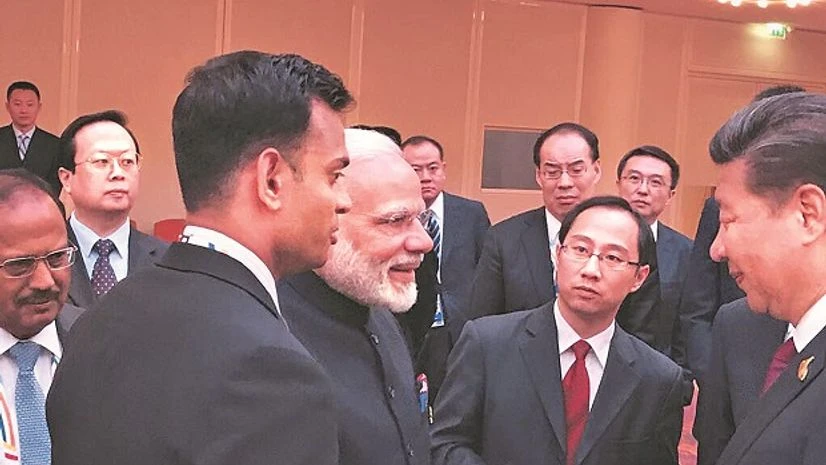India on Thursday made a renewed pitch for a “peaceful resolution” of the Doklam standoff with China through diplomatic channels, insisting that differences should not become disputes. The assertion by New Delhi came on a day China said diplomatic channels remained “unimpeded” to discuss the issue provided India withdraws its troops from Doklam.
Ministry of External Affairs spokesperson Gopal Baglay told reporters that India has been in “close contact” with the Bhutan government on the unfolding developments, noting that diplomatic channels to resolve the issue with China have not broken off.
Responding to supplementaries during Question Hour in the Rajya Sabha, External Affairs Minister Sushma Swaraj said China intends to unilaterally change the status of the tri-junction with Bhutan, posing a challenge to India’s security. On the standoff at Doklam, she referred to the written agreement between India, China and Bhutan in 2012 that the three nations will together decide on the boundaries at the tri-junction point.
More From This Section
“We are saying that the matter could be resolved through talks, but both sides have to first take back their armies,” she said.
The minister also said India was not “unreasonable” on the Doklam border issue and that all nations were with it.
Observing that China was demanding the withdrawal of the Indian troops from the tri-junction point, she said India has been saying that both countries would have to withdraw their armies before amicably resolving the dispute through talks.
Swaraj said “their (China’s) intention was to reach the tri-junction so that they could unilaterally end the status of the tri-junction. It was only then that India came into the picture.
“If China unilaterally changes the tri-junction point, then India’s security is challenged,” she said, adding Bhutan has protested in writing to China on this issue.
Swaraj said “all countries are supporting us and they understand that the stand taken by India on the issue is not wrong” as they realise that China is getting aggressive with Bhutan. “India’s position is not wrong on the tri-junction and all nations are with it. The law is with our country and all are realising this,” she said.
When asked about China ratcheting up rhetoric against India, Baglay quoted 15th-century saint Kabir, indicating it was not necessary to take note of everything that has been coming from the Chinese side. “It is obvious that every responsible power, every responsible person and player in the world, of course, prefers peaceful resolution of matters that are in hand,” Baglay said.
Earlier in the day, China said diplomatic channels with India remained “unimpeded” to discuss the Doklam standoff but at the same time reiterated that the withdrawal of the Indian troops from the area is a “precondition” for any meaningful dialogue.
The MEA spokesperson also said at least one flag meeting between the two sides had taken place after the face-off, which began on June 16. “I am aware of flag meeting taking place after June 16. Now whether there was one or more, I am not aware of.”
On whether India has briefed other countries on the issue, Baglay said, “It is not appropriate for me to comment on diplomatic discussions and interactions that take place as a regular matter and also on sensitive issues of this nature.” “I would not like to go into the details of how and what and with whom such conversations have taken place, if they have taken place,” he said.
On whether India can explore going to the UN if diplomacy fails to resolve the standoff, Baglay said he could not reply to hypothetical questions but added, “In a sense you have answered your own question.”
Asked about comments by West Bengal Chief Minister Mamata Banerjee and her Jammu and Kashmir counterpart Mehbooba Mufti that China could be behind troubles in their states, Baglay evaded a reply and only said cross-border terrorism was the root of the problem in J&K.
Baglay also confirmed that National Security Advisor Ajit Doval will travel to Beijing to attend a meeting of the BRICS multilateral grouping on July 27 and 28.

)
